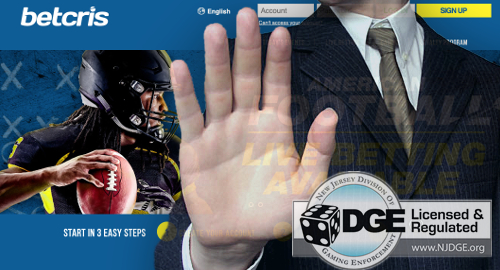 New Jersey’s gambling regulator wants media outlets to stop referencing internationally licensed online sportsbooks that aren’t authorized to take wagers from New Jersey bettors.
New Jersey’s gambling regulator wants media outlets to stop referencing internationally licensed online sportsbooks that aren’t authorized to take wagers from New Jersey bettors.
On Tuesday, David Rebuck, director of New Jersey’s Division of Gaming Enforcement (DGE), issued an advisory bulletin regarding “media references to unauthorized sports wagering websites.” Rebuck stressed “the importance of not endorsing or referencing internet sportsbook operators” not holding the DGE’s stamp of approval.
It’s come to the DGE’s attention that media outlets love quoting sportsbooks regarding betting odds on upcoming sporting events or proposition wagers involving celebrities or political figures. But too often, the DGE finds that the sportsbooks cited in the articles have not been vetted by the DGE and thus “lack consumer protections, integrity protocols and money laundering controls,” let alone a tax receipt from the state treasury.
Rebuck wants media types to “only source information from sites that are licensed either in New Jersey or another jurisdiction,” although most online sportsbooks hold a license issued in the jurisdiction from which they operate, so the media will be left scratching their heads on that one.
Rebuck also wants the media to “limit discussion on wagering odds for an event when there is no authorized source available.” So if the DGE hasn’t authorized wagers on certain props or events, the media is to go full ostrich and pretend the event isn’t happening.
However, the media could cite such odds so long as they include a caveat that the site offering said wagers isn’t DGE-approved and then direct readers/viewers to the DGE website for a list of approved sites. That would effectively make these media outlets an affiliate of the DGE’s licensees, so hopefully the DGE will allow these outlets to claim some of kind of kickback, preferably on a lifetime revenue-share basis but a CPA will do in a pinch.
Finally, the DGE definitely doesn’t want online media to include hyperlinks to international gambling sites, because people might actually click on it and find themselves sliding down that slippery slope to (a) hell and (b) a greater variety of gambling options.
Should a media employee be contacted by a gambling operator with a betting story pitch, the humble scribe should “immediately” contact the DGE to determine whether or not said operator or betting market is DGE-approved. Failing that, standing up on one’s chair and yelling ‘stranger danger’ will probably suffice.
The DGE has previously warned locally approved online gambling affiliates that they could face “appropriate civil or criminal sanctions” if they’re caught promoting sites that don’t know the DGE’s secret handshake, even if affiliates are pitching these sites to customers based outside New Jersey.